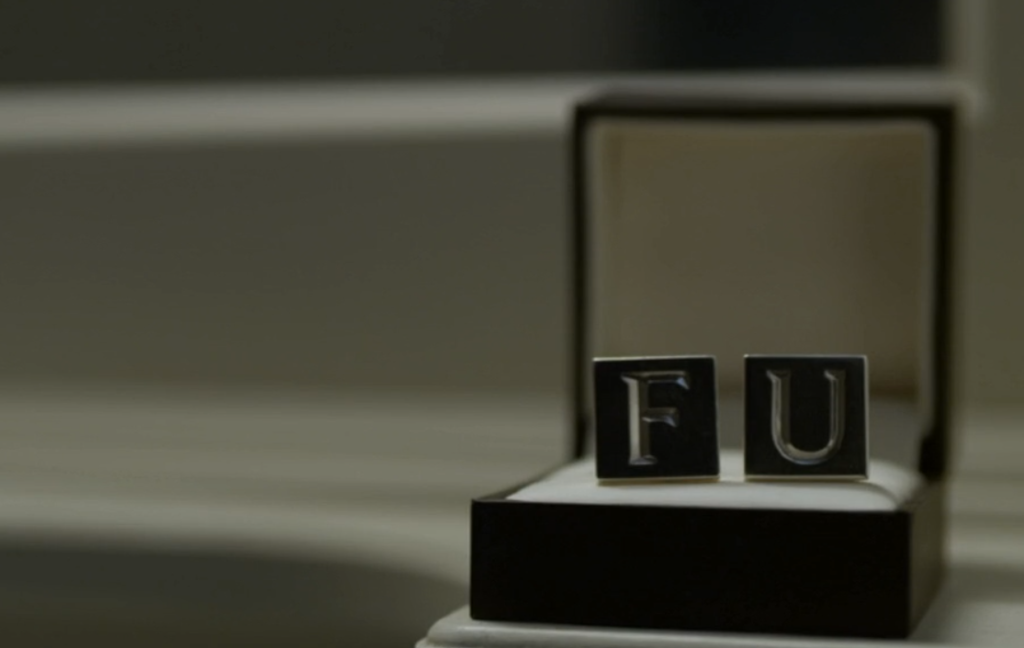
By its very nature, House of Cards invites discussion. It entire first season was foisted upon us all at once last February as an early Valentine’s Day present: a tale of escalating palace intrigue that culminated, in Episode 11, with the shocking (and somewhat absurd) murder of Congressman Peter Russo. Season 2, which was released — en masse, once again — to much fanfare on Friday, provoked even larger ripples online, eliciting the ritual thinkpieces, interviews, and meta-analyses.
You’ll forgive me, then, for wading in myself. As a binge-watcher of Season 2 (I finished the finale sometime after midnight on Monday), I fell prey, like so many others, to the seductive guile of Frank Underwood as he marched his way straight into the Oval Office.
Let’s leave plot contrivances aside for a moment. House of Cards may fancy itself pop culture’s sharpest purveyor of political realism, but its broad narrative brushstrokes are nothing if not impressionistic. (Either that or I’m not nearly paranoid enough about my elected officials.)
Much of the conversation sandwiching the release of the second season centered on House of Cards‘ innate cynicism. Ian Crouch, writing for The New Yorker, for example, explained the show’s ethos thusly:
“House of Cards,” back now with its entire second season streaming on Netflix, is a show about contempt. There is contempt in the general, interpersonal sense: the politicians, operatives, journalists, and various other D.C. types all hold one another in especially expressive disregard. (Last season, Francis Underwood, played by Kevin Spacey, explained his relationship to his colleagues like this: “They talk while I sit quietly and imagine their lightly salted faces frying in a skillet.”) And there is contempt in the legal sense—the plots turn on the subversion and manipulation of rules and regulations, and the breaking of laws (murder, etc.) for personal gain and professional advancement. Ethics, like feelings, are obstacles, and beneath consideration.
Crouch goes on to claim, rather convincingly, that the series saves its most ferocious contempt for its own audience: “We are the ones, after all, who tolerate and thus perpetuate the real-life theatre of venality and aggression from which ‘House of Cards’ derives its plausibility.”
As a description of the political status quo, this is certainly true. Crouch, however, clouds his thesis by emphasizing the cockiness of Beau Willimon, the showrunner whose elimination of yet another principal character in the Season 2 premiere showcased, Crouch reports, “a power trip in which the show and its main character assume parallel roles as bullies.”
While this is a perfectly defensible interpretation of the relationship between House of Cards and its enraptured fan base, it is not, I think, the most accurate one. Contempt implies strength of feeling: it is, after all, one of the telltale signs of a marriage in dissolution. Admittedly, it is often a sign of power inequality as well: the strong feel contemptuous of the weak, not vice versa. Nevertheless, contempt connotes a vigorous degree of hostility.
But it is this precise feature — red-faced rage and its emotionally-charged cousins — that is almost entirely absent from House of Cards‘ dalliance with its viewership. On this, Todd VanDerWerff of A.V. Club hits the right note:
Midway through the season-two finale of House Of Cards, Kevin Spacey’s Francis Underwood confronts one of the many people incredibly pissed off at him backstage at the opera. (It has to be the opera, for House Of Cards does not do subtlety.) The conversation is interrupted by a patron who exits the auditorium, presumably looking for a bathroom. They look over at her as she walks through—both seemingly miffed that she even exists. It’s a scene that summarizes House Of Cards’ relationship to the average American citizen: Everybody in this country is grist for the mill for politicians like Frank, who serve only themselves and carry out their real deal-making far behind the scenes of what’s available to the press and C-SPAN. And don’t you think you have the right to know about it. At best, you’re an irritating inconvenience. At worst, you’re dead.
Contempt is for threats; rivals, even. Contempt is what drove Frank Underwood to send Peter Russo to his makeshift gas chamber in Season 1 and Zoe Barnes to her early demise in Season 2. It is, as a general rule, the principal sentiment vaulting Underwood’s entire career past those of his peers in the House of Representatives and beyond.
But a clear line separates the contempt pervading nearly all of House of Cards‘ interpersonal relationships from its most crucial one by far: that of Frank Underwood’s with the audience. When, in the new season’s premiere, Kevin Spacey at last addresses the viewer, he gazes not directly into the camera, as is his wont, but through a bathroom mirror. As he speaks, the camera pulls in slowly until the frame edging the glass is almost completely obscured: Frank Underwood has met his reflection, and it is us.
Did you think I’d forgotten you? Perhaps you hoped I had. Don’t waste a breath mourning Miss Barnes. Every kitten grows up to be a cat. They seem so harmless at first—small, quiet, lapping up their saucer of milk. But once their claws get long enough, they draw blood. Sometimes from the hand that feeds them. For those of us climbing to the top of the food chain, there can be no mercy. There is but one rule: hunt or be hunted. Welcome back.
Ian Crouch views this parting scene as evidence of Willimon’s arrogance:
And then there is one last shot, in case there was any confusion as to the message: a pair of silver cufflinks bearing Frank’s initials. They’d been mentioned before—a birthday gift from his body man—and, called back, they make for a funny visual gag: “F.U.” … We’ve been told, as the Times likes to say, to “commit a physically impossible act.” Frank despises most everybody—why should we be an exception?
But here Crouch misunderstands Underwood and, by extension, Willimon. “F.U.” is the precise opposite of a “power trip:” it is, rather, the ultimate invitation to an insiders’ club. It is a joke so obvious it begs to be understood, a wink that demands a knowing nod. As a sophomoric sight gag, “F.U.” is a souvenir to its audience. But as an epithet, “F.U.” is decidedly not a message to those of us who watch House of Cards: it’s a contemptuous insult for everyone who doesn’t.
From this perspective, the message of House of Cards is remarkably consistent. It is no accident that an unsubtle version of Politico — an online-only publication dubbed Slugline — serves as the most formidable opponent of Underwood as he rapidly scales the Washington political ladder. Indeed, it is only the murder of its most intrepid reporter that reestablishes Underwood’s control over his own destiny, an objective that could only be derailed by a consummate insider such as Zoe Barnes. In a two-season narrative arc dedicated to highlighting Frank Underwood’s utter mastery of his domain, the single common thread uniting him to all of his peers in House of Cards is their overwhelming collective insulation from life outside the Mall.
Indeed, the fiercest contempt in the series is reserved for all of The Others: those who believe in a democratic politics, the power of representative elections, education reform, foreign policy initiatives, the national interest. People who didn’t catch “F.U.” Simpletons, one and all.
Is anyone really supposed to care about any of the particular policy battles waged throughout the first two seasons? Do we even remember what they were? Of course not: we’re here for the spectacle. We’re here, in short, to become insiders too. It is in this arena that House of Cards excels: it masterfully inhabits the universe populated by our politicians and the hordes of journalists who mob their every prepackaged press conference and giggle over their every wayward tweet. Contempt for the real world goes without saying. We are all complicit in trading away accountability journalism for tabloid-style coverage of the daily political grind, and House of Cards is our soma.
Todd VanDerWerff neatly captures this addiction to irrelevance towards the end of his review:
Yet House Of Cards is also weirdly perfect when it comes to what it’s meant to do, which is keep viewers plowing through episodes, regardless of time spent doing so. There are just enough flourishes around the edges…that it’s possible to feel like House Of Cards has something deeper on its mind, even when it’s all but clear it doesn’t. This is sleight of hand that works much better in the middle of the binge, rather than a few hours later, when contemplating whether the plot made any sense.
VanDerWerff appears, at first glance, to be damning House of Cards with faint praise. But it is really quite the opposite: in portraying Washington as a city full of sound and fury, signifying nothing, House of Cards has in fact perfectly captured the reality of modern politics in the era of horse-race journalism.

 Yesterday I finished reading Michel Houellebecq’s Prix Goncourt-winning novel
Yesterday I finished reading Michel Houellebecq’s Prix Goncourt-winning novel 





